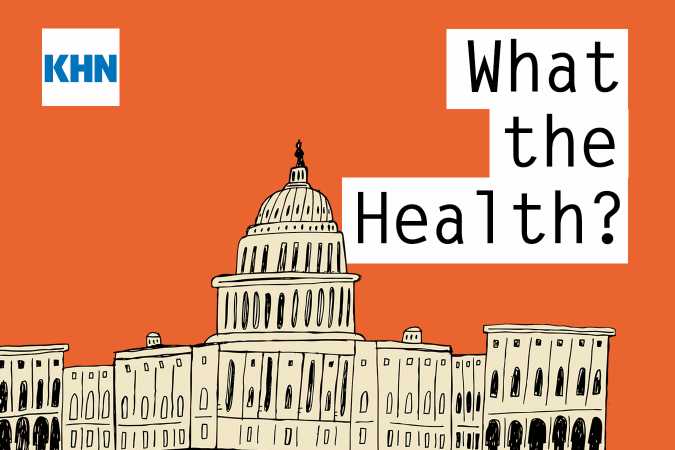https://alternative-medicine-doctors.com/top/injectable-doxycycline/
The Host
This week, the eyes of the nation are on Texas, where a federal judge who formerly worked for a conservative Christian advocacy group is set to decide whether the abortion pill mifepristone can stay on the market. Mifepristone is half of a two-pill regimen that now accounts for more than half of the abortions in the United States.
Meanwhile, Novo Nordisk, another of the three large drug companies that dominate the market for diabetes treatments, has announced it will cut the price of many of its insulin products. Eli Lilly announced its cuts early this month. But the push for more affordable insulin from activists and members of Congress is not the only reason for the change: Because of quirks in the way the drug market works, cutting prices could actually save the companies money in the long run.
This week’s panelists are Julie Rovner of KHN, Jessie Hellmann of CQ Roll Call, Sarah Karlin-Smith of the Pink Sheet, and Alice Miranda Ollstein of Politico.
Panelists
Among the takeaways from this week’s episode:
- The federal judge examining the decades-old approval of mifepristone could issue a decision at any time after a hearing largely behind closed doors, during which he appeared open to restricting access to the drug.
- Democratic governors seek to counter the chill of Republican states’ warnings to pharmacies about distributing mifepristone, and a separate lawsuit in Texas seeks to set a precedent for punishing people who aren’t medical providers for assisting someone in obtaining an abortion.
- In pandemic news, Congress is moving forward with legislation that would force the Biden administration to declassify intelligence related to the origins of covid-19, while the editor of Cochrane Reviews posted a clarification of its recently published masking study, noting it is “inaccurate” to say it found that masks are not effective.
- Top federal health officials sent an unusual letter to Florida’s surgeon general, warning that his embrace of vaccination misinformation is harmful, even deadly, to Americans. While covid vaccines come with some risk of negative health effects, contracting covid carries a higher risk of poor outcomes.
- Novo Nordisk’s announcement that it will cut insulin prices puts pressure on Sanofi, the remaining insulin maker that has yet to adjust its prices.
- The Veterans Health Administration will cover Leqembi, a new Alzheimer’s drug. The decision comes as Medicare considers whether it will also cover the drug. Experts caution that new drugs shaking up the weight-loss market could prove costly for Medicare.
- Washington is eyeing changes to federal rules that would affect the practice of medicine. One change would force health plans to speed up “prior authorization” decisions by health insurers and increase transparency around denials, which supporters say would help patients better access needed care. Another proposal would ban noncompete clauses in contracts, including in health care. Arguments for and against the change both cite the issue of physician burnout — though they disagree on whether the ban would make the problem better or worse.
Email Sign-Up
Subscribe to KHN's free Morning Briefing.
Plus, for “extra credit,” the panelists suggest health policy stories they read this week that they think you should read, too:
Julie Rovner: “Tradeoffs” podcast’s “The Conservative Clash Over Abortion Bans,” by Alice Miranda Ollstein and Dan Gorenstein
Alice Miranda Ollstein: Politico’s “Sharpton Dodges the Spotlight on Latest Push to Ban Menthol Cigarettes,” by Julia Marsh
Sarah Karlin-Smith: Allure’s “With New Legislation, You Can Expect More Recalls to Hit the Beauty Industry,” by Elizabeth Siegel and Deanna Pai
Jessie Hellmann: The New York Times’ “Opioid Settlement Hinders Patients’ Access to a Wide Array of Drugs,” by Christina Jewett and Ellen Gabler
Also mentioned in this week’s podcast:
- CQ Roll Call’s “Noncompete Rule Puts Doctors, Hospitals at Odds,” by Jessie Hellmann
- Cochrane’s “Statement on ‘Physical Interventions to Interrupt or Reduce the Spread of Respiratory Viruses’ Review,” by Karla Soares-Weiser, editor-in-chief
- The “Osterholm Update” podcast’s “Truth in the Midst of Political Theater,” by Michael Osterholm and Chris Dall
- Stat’s “Denied by AI: How Medicare Advantage Plans Use Algorithms to Cut Off Care for Seniors in Need,” by Casey Ross and Bob Herman
Credits
To hear all our podcasts, click here.
And subscribe to KHN’s What the Health? on Spotify, Apple Podcasts, Stitcher, Pocket Casts, or wherever you listen to podcasts.
Source: Read Full Article
